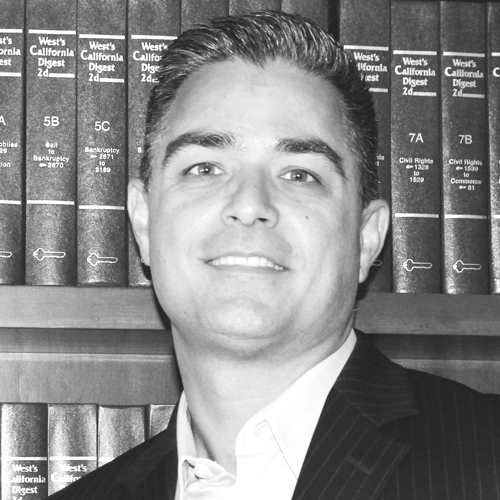Brennan Torregrossa loves a challenge. “I enjoy trying things that have never been tried before. Just because something is easy or ‘the way it’s always been done’ doesn’t mean it’s right,” he says.
As vice president and associate general counsel in charge of GlaxoSmithKline’s (GSK) Global External Legal Relations Team (GELRT), Torregrossa’s mandate is to redefine the way the pharmaceutical giant pays its outside law firms. “To put it simply, we’re trying to kill the billable hour. But it’s really more nuanced than that. We’re trying to establish win-win relationships, obtain excellent legal representation, and work with firms that deliver great value and are willing to work with us outside the billable hour model,” he says.
They’re not alone in this effort. According to Altman Weil’s 2015 Law Firms in Transition survey, 93 percent of law firms in the United States offer some type of alternative fee arrangement (AFA) or value-based fee arrangement (VBF), and 81 percent of lawyers believe non-hourly billing has become a permanent trend in the profession. These numbers make the practice appear more widespread than it really is, though. While the number of corporate legal departments experimenting with AFAs has increased, the overall amount of work being done on a non-hourly basis has remained steady the past several years at just 9 percent, according to the Enterprise Legal Management Trends Report.
While the trend is evident—and had received a major spark following the 2007–2008 recession—GSK’s dedication to the goal is revolutionary. In 2008, when GSK’s general counsel, Daniel Troy, asked Torregrossa’s predecessor Bob Harchut to implement the plan, 97 percent of the company’s legal work was paid by the hour. Today, it is just 15 percent.
“When you pay by the hour, you pay for the time, not the service, which can lead to lots of inefficiency,” he explains. “We want to reward outside counsel for the work they do, not for the hours spent doing it.” To make this viable, GSK has broken its legal work into tasks, describing the desired results rather than the duration.
But how does Torregrossa’s team know how to price various legal tasks? He admits it has been, and continues to be, a learning process. One of the solutions they’ve hit upon is an online bidding program called the Outside Counsel Selection Initiative (OCSI). Launched in 2010, the program, which was borrowed from GSK’s procurement department, invites certain law firms to submit proposals for specific matters, quite similar to a traditional request for proposal. Torregrossa describes it as a “reverse eBay process.”
“We want to reward outside counsel for the work they do, not for the hours spent doing it.”
“The firms can’t see who they are bidding against, but they can see the bids and where they rank, which usually inspires them to lower the cost of their proposal,” Torregrossa says. Price is not the only factor on which GSK bases its decision, though. “Our managing attorneys assign scores to various aspects of the proposals—e.g., the law firm’s expertise in a legal area and jurisdiction, key impressions of how they would handle the case or project, the diversity of their team. All those things are factored into an overall score for each firm. Our goal is to get the right lawyer or law firm for the right case at the right price.”
Torregrossa realizes that this is a direct challenge to the way most law firms operate, with annual increases in salaries, billable rates, and hourly quotas. “The pressure to bill an incredible number of hours is, well, incredible. I want to lift that weight off lawyers. I want to get back to building some results together and want our outside law firms to have that same commitment,” he says.
“When Don Draper in Mad Men worried about accountants wielding too much influence in the company, he asked, ‘What are we doing here? Why are we spending so much time trying to turn a dollar into a dollar [and] ten [cents]? Who’s in charge?’ That’s how the billable hour can make you feel,” Torregrossa continues.
This approach has been well-received by his colleagues: “We appreciate Brennan’s approach to his new role. Success in this model requires an open dialogue with the inhouse and law firm lawyers, and it does require adjustment over time,” Gordon Cooney of Morgan Lewis notes. “We believe that we can all benefit from a model that rewards efficiency and successful outcomes.” GSK has reduced its legal spending by roughly 20 percent since switching from the billable hour to mostly fixed or flat fees, but Torregrossa says the payoff doesn’t stop there.
“It’s never been just about saving a dollar because we can, but because we should. We believe this allows us to better align our interests with those of our law firms. And every dollar we save on legal fees can be returned to shareholders, spent on research and development to discover important new vaccines or other drugs, or used to help lower the cost of our consumer products,” he explains.
The switch has also enabled GSK to reduce inefficiency in-house. Where they used to spend an abundance of time reviewing law firm bills, checking hours, and keeping an eye out for budget overruns, GSK’s attorneys now receive quarterly reports from the law firms they’re working with and will soon use dashboards to track the status of their projects.
But have any of their go-to firms declined to make the switch? “Certain firms have more of a challenge to play in this environment than others, but most firms know that the tide has turned and clients are demanding flexibility in the way they pay for matters,” he says.
And what about those lawyers who can charge whatever they want? “Some lawyers have an extraordinary amount of cachet in certain areas of law, enabling them to set their own rates,” he says. “It’s hard to push against that if the market is willing to pay it. But even some of those attorneys have been willing to try a new model.”
Torregrossa says that companies that wish to make task-based billing work must have clear direction from the top: “The companies leading this revolution away from the billable hour have one thing in common: general counsel who make the mission an absolute priority.”
“I believe this is a far better way to pay for legal services,” he says. “It can be exhausting fighting against something as ingrained as the billable hour, but we now feel there is more of a match between what we’re paying and the value we’re getting. It is all about building strong relationships with firms we trust to represent us and who trust us to compensate them fairly.”

